The calendar turns its pages to 2024, the ever-evolving landscape of visual design propels us into an exciting era of innovation and creativity. Anticipate a convergence of cutting-edge technologies, societal shifts, and artistic expressions that will define the visual trends of the year. In this exploration, we unveil the top 10 visual trends for 2024 that are poised to captivate our senses and redefine the way we perceive the world.
As we anticipate the visual trends for 2024, it’s clear that the future is an immersive, dynamic, and technologically advanced canvas. The fusion of AI, holography, sustainability, and personalization paints a picture of a visual trends that goes beyond aesthetics—it becomes a journey of experiences, emotions, and meaningful interactions. Brace yourself for a visual odyssey that transcends the boundaries of imagination and unveils the extraordinary in the ordinary.
GDJ has forecasted 10 top visual trends for 2024:t
Table Of Content
- Top Visual Trends For 2024
- Holographic Realities: Beyond the Screen
- Neural Aesthetics: Art by Artificial Intelligence
- Cyberpunk Chic: A Fusion of Tech and Fashion
- Dynamic Data Visualization: The Art of Information
- Biometric Branding: A Personalized Touch
- Quantum Color Palette: Beyond the Spectrum
- Virtual Wardrobe: The Rise of Digital Fashion
- Sustainable Immersion: Eco-Conscious Virtual Worlds
- Emotive Typography: Words with Feeling
- Mindful Motion: Purposeful Animation
- Conclusion: A Visual Odyssey Awaits
Top Visual Trends For 2024
Embark on a visual adventure with the Top Visual Trends for 2024, predicted by GDJ. From the revolutionary Holographic Realities to the fusion of Tech and Fashion in Cyberpunk Chic, these trends redefine how we perceive and interact with design. Neural Aesthetics explores the collaborative synergy between human creativity and artificial intelligence, while the Quantum Color Palette takes us beyond the conventional spectrum. Embrace Sustainable Immersion for eco-conscious virtual worlds and witness the rise of a Virtual Wardrobe. These trends promise a dynamic visual landscape that transcends boundaries, offering daily readers and subscribers an inspiring glimpse into the future of design.
1. Holographic Realities: Beyond the Screen
In the ever-evolving landscape of visual design, the year 2024 marks a paradigm shift as we transcend the limitations of traditional screens into the realm of holographic realities. This groundbreaking visual trend not only captivates our senses but also redefines the way we perceive and interact with information, entertainment, and the world around us.
a. The Emergence of Holographic Realities

Imagine a world where digital content is not confined to flat screens but materializes in three-dimensional holograms, seamlessly blending with our physical environment. This is the essence of holographic realities—a convergence of cutting-edge technologies that unlock immersive and interactive experiences beyond anything previously conceivable.
b. Breaking Free from Two-Dimensional Constraints
Traditional screens have long been the conduits through which we consume digital information. However, holographic realities liberate content from the confines of flat surfaces, offering an experience that extends into the space around us. This shift from two-dimensional to three-dimensional visualizations transforms the way we engage with digital media, bringing it to life in ways previously reserved for science fiction.
c. Immersive Storytelling and Experiences
The true magic of holographic realities lies in their ability to immerse users in captivating storytelling and experiences. Whether it’s interactive educational content, lifelike virtual tours, or dynamic product demonstrations, holographic visuals create a sense of presence and engagement that goes far beyond what traditional screens can achieve. Users find themselves surrounded by and actively participating in the narrative, making the experience more memorable and impactful.
d. Applications Across Industries
The adoption of holographic realities spans various industries, revolutionizing the way businesses and creators communicate with their audiences. In the realm of education, holographic lessons transport students to historical events or microscopic worlds. In healthcare, medical professionals can visualize complex anatomical structures in three dimensions. Retailers can showcase products in a virtual showroom, allowing customers to explore and interact with items before making a purchase. The applications are vast, reshaping the landscape of communication and interaction.
e. Interactive Design and User Engagement
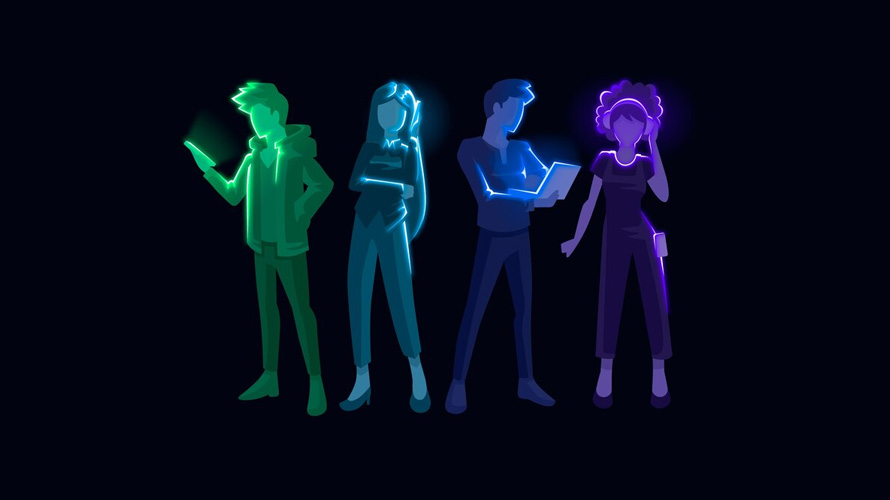
Holographic realities demand a shift in design thinking. Designers now have the opportunity to create interactive, spatial experiences that respond to user gestures and movements. This dynamic interaction goes beyond the limitations of touch screens, offering a more intuitive and natural way to engage with digital content. Users can manipulate and explore holographic elements with their hands, fostering a deeper connection between the virtual and physical worlds.
f. Challenges and Advancements
While the promise of holographic realities is enticing, it comes with its share of challenges. The need for sophisticated hardware, such as holographic displays and sensors, poses initial barriers to widespread adoption. However, ongoing advancements in technology are rapidly addressing these challenges, making holographic experiences more accessible and practical for everyday use.
g. The Future Unveiled
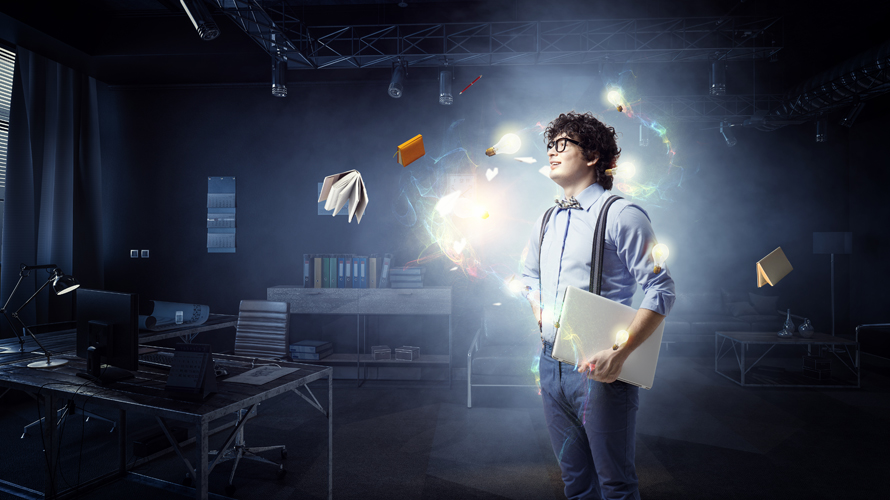
Holographic realities represent more than just a visual trend; they unveil a future where the digital and physical realms seamlessly intertwine. As the technology matures and becomes more ubiquitous, we can anticipate a transformation in the way we learn, entertain, and connect. Holographic realities invite us to step beyond the screen and into a world where imagination knows no bounds—a world where the extraordinary becomes the new ordinary.
2. Neural Aesthetics: Art by Artificial Intelligence
In the avant-garde realm of visual trends for year 2024 unveils a revolutionary trend — Neural Aesthetics — where art and artificial intelligence (AI) converge to redefine the boundaries of creativity. This cutting-edge movement marks a departure from traditional artistic processes, ushering in a new era where machines contribute to the artistic narrative.
a. The Fusion of Human Creativity and Machine Intelligence

Neural Aesthetics represents a seamless fusion of human creativity and the computational prowess of artificial intelligence. This collaborative dance between artist and algorithm challenges the conventional notions of authorship and opens a door to a realm where machines become co-creators in the artistic process. Generative algorithms, driven by neural networks, analyze vast datasets to produce unique and captivating visual compositions that push the boundaries of what was once thought possible.
b. AI-Generated Art as a Form of Expression
AI-generated art is not merely an experiment in code; it is a genuine form of expression that transcends the binary confines of algorithms. These creations evoke emotions, provoke thought, and resonate with audiences in ways reminiscent of traditional art. The AI artist becomes a partner in the creative journey, offering novel perspectives and exploring uncharted aesthetic territories.
c. Challenges and Ethical Considerations
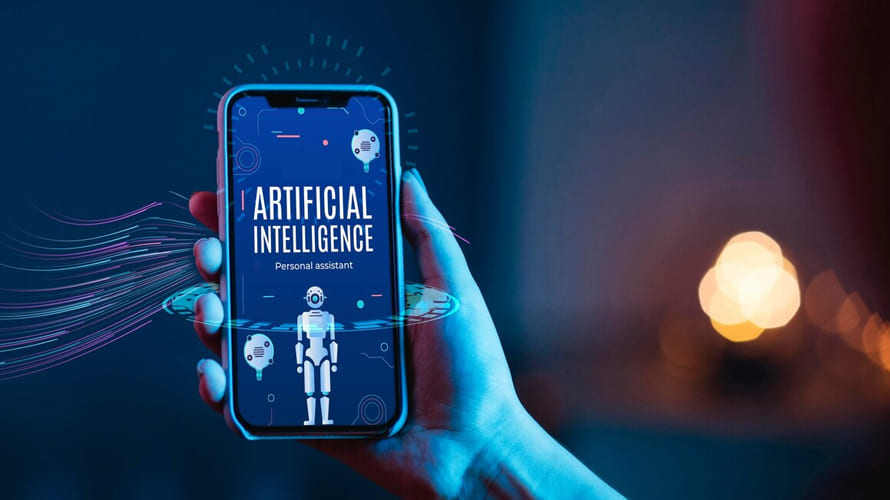
As Neural Aesthetics gains prominence, it brings with it a set of challenges and ethical considerations. Questions about the role of human intent in AI-generated art, the potential for bias in training data, and the broader implications for the art community emerge. However, these challenges prompt important conversations about the intersection of technology and creativity, encouraging a thoughtful exploration of the ethical dimensions of AI in the artistic landscape.
d. A New Chapter in Artistic Exploration
Neural Aesthetics signifies a new chapter in the ever-evolving narrative of artistic exploration. It invites artists, technologists, and audiences alike to witness the synergistic dance between human intuition and machine intelligence. As AI continues to evolve as a creative collaborator, Neural Aesthetics promises to unlock uncharted realms of artistic expression, challenging preconceived notions and enriching the tapestry of visual culture in unforeseen ways.
3. Cyberpunk Chic: A Fusion of Tech and Fashion
In the visual trends of 2024, a dynamic and futuristic trend takes center stage — Cyberpunk Chic. This avant-garde aesthetic seamlessly merges elements of technology with fashion, creating a visual symphony that transcends traditional boundaries and propels us into a gritty, yet sophisticated, urban future.
a. Urban Grit Meets Technological Elegance
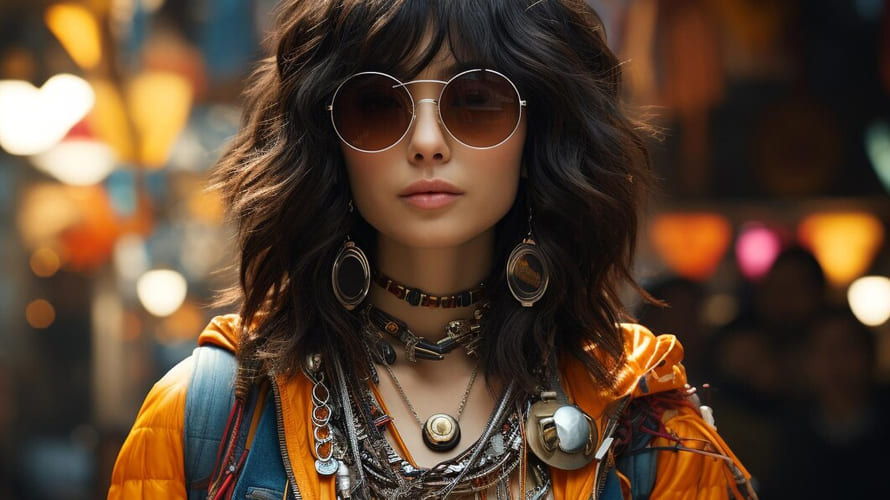
Cyberpunk Chic draws inspiration from the cyberpunk genre, infusing fashion with the raw and edgy elements of urban environments. This trend embraces the juxtaposition of gritty street style with the sleek sophistication of advanced technology. Think sleek neon lights, metallic accents, and futuristic silhouettes converging with the rugged and rebellious undertones of urban streetwear.
b. High-Tech Fabrics and Functional Design
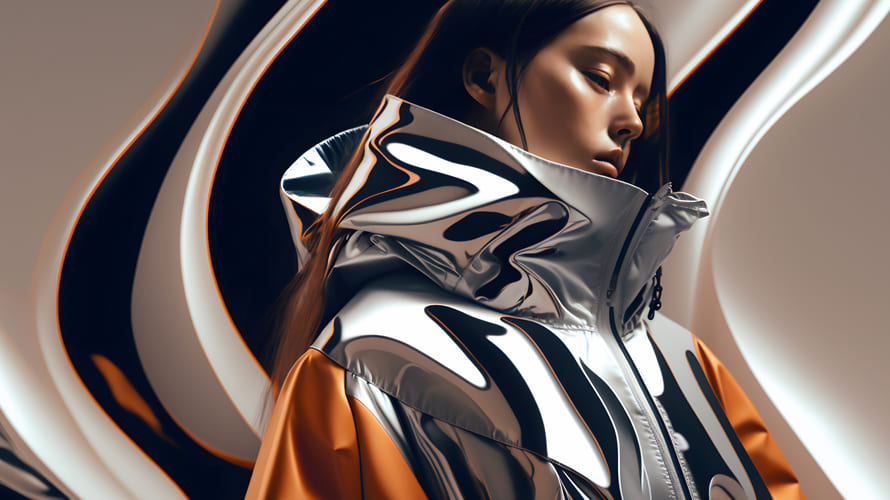
At the core of Cyberpunk Chic is the integration of high-tech fabrics and functional design. From garments embedded with smart textiles to accessories that serve a dual purpose in both aesthetics and utility, this trend redefines the concept of fashion as mere adornment. Practicality meets style, creating a wardrobe that not only looks cutting-edge but also caters to the demands of a tech-infused lifestyle.
c. The Rise of Techwear
Techwear, a subgenre within Cyberpunk Chic, emerges as a defining element. This style fuses utility with high fashion, featuring garments equipped with embedded technology, modular designs, and weather-resistant materials. The result is a fashion-forward aesthetic that not only reflects a love for innovation but also anticipates the needs of an increasingly interconnected and tech-savvy society.
d. Influence Across Industries
The impact of Cyberpunk Chic extends beyond the realm of fashion. Its influence can be seen in product design, architecture, and even digital interfaces. The aesthetic choices of this trend seep into everyday life, creating a cohesive visual language that blurs the lines between the physical and digital worlds.
e. A Glimpse into the Future
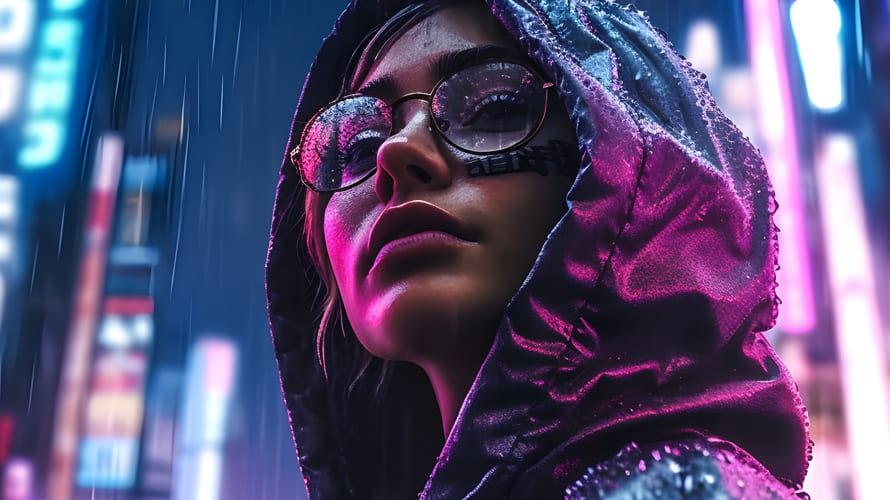
As Cyberpunk Chic gains momentum, it offers a glimpse into a future where fashion becomes an integral part of our relationship with technology. This trend represents not just a visual style but a cultural movement, reflecting our collective fascination with the synergy of the urban landscape and the ever-evolving world of technology. Cyberpunk Chic invites us to embrace the future with style, where fashion becomes a canvas for the dynamic intersection of grit and glamour.
4. Dynamic Data Visualization: The Art of Information
In the visual trends of 2024, a transformative trend known as Dynamic Data Visualization emerges as a powerful fusion of art and information. This trend transcends traditional data representation, elevating the communication of complex information into an immersive and visually engaging experience.

a. Transforming Complexity into Visual Poetry
Dynamic Data Visualization is an innovative approach that transforms intricate datasets into compelling narratives. Gone are the days of static graphs and charts; this trend leverages dynamic elements, interactive interfaces, and creative storytelling techniques to convey information in a way that is both informative and captivating. Complex datasets evolve into visual poetry, providing audiences with a deeper understanding of the information at hand.
b. Interactive Exploration of Information
At the heart of Dynamic Data Visualization is the emphasis on interactivity. Users are no longer passive observers but active participants in the exploration of data. Whether it’s a business report, educational content, or statistical analysis, the dynamic nature of the visuals allows users to interact with and manipulate the information, fostering a more intuitive and engaging learning experience.
c. Multisensory Experiences
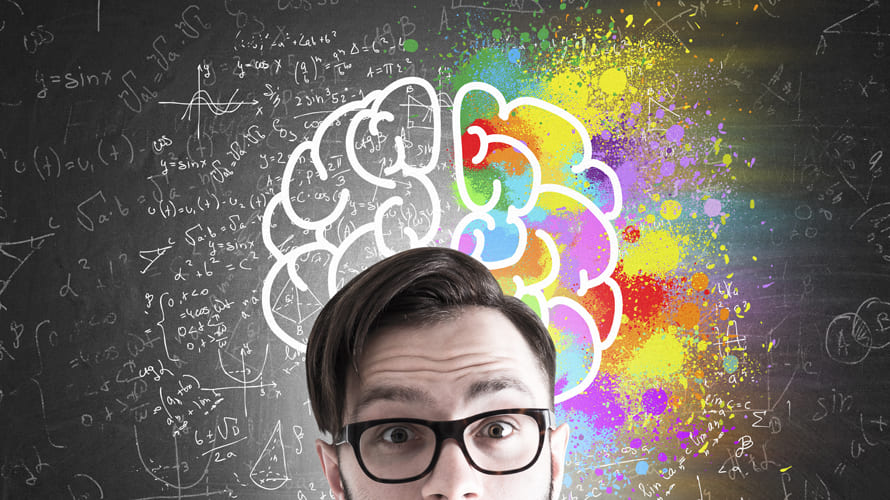
Dynamic Data Visualization extends beyond the visual sense, incorporating multisensory elements to enhance the overall experience. Imagine data sets that not only captivate the eyes but also engage other senses, creating a more profound connection with the information. This multisensory approach goes beyond traditional boundaries, offering a holistic and immersive understanding of complex subjects.
e. Empowering Decision-Making and Understanding
The application of Dynamic Data Visualization goes beyond aesthetics; it empowers decision-makers and enhances public understanding. Businesses can use dynamic visuals to identify trends, educators can convey complex concepts more effectively, and researchers can communicate findings with unprecedented clarity. The democratization of information through dynamic visualization becomes a catalyst for informed decision-making and knowledge dissemination.
e. A Paradigm Shift in Information Design

Dynamic Data Visualization represents a paradigm shift in information design, moving away from static representations toward a more fluid and adaptive approach. As we navigate an era of information abundance, the artful presentation of data becomes instrumental in ensuring comprehension and engagement. Dynamic Data Visualization not only elevates the presentation of information but also transforms the act of learning and decision-making into a visually rich and interactive experience.
5. Biometric Branding: A Personalized Touch
In the visual trends of 2024, a groundbreaking trend, Biometric Branding, emerges as a pioneering force, reshaping the way brands connect with their audiences. This innovative approach leverages biometric data to create a personalized and intimate visual experience, forging a deeper connection between consumers and brands.
a. The Power of Personalization through Biometrics

Biometric Branding goes beyond traditional demographic targeting by tapping into the unique biological traits of individuals. From facial recognition to fingerprint analysis, brands now have the ability to tailor their visual identity based on the specific characteristics of their audience. This level of personalization transforms the brand-consumer relationship from a one-size-fits-all approach to a bespoke visual experience.
b. Facial Recognition as a Key Element
Central to Biometric Branding is the utilization of facial recognition technology. Brands can employ this technology to customize visuals in real-time, tailoring content to individual preferences and demographics. This not only creates a more engaging and relevant brand experience but also establishes a sense of recognition and personal connection with the audience.
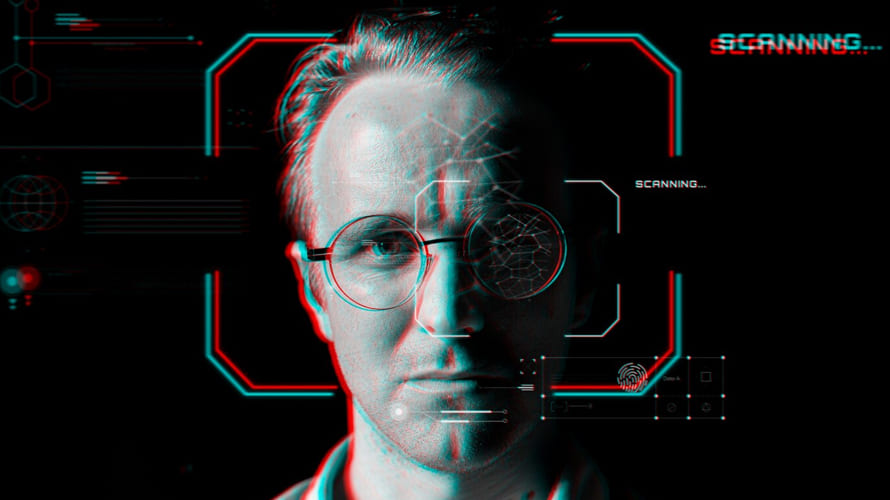
c. Building Trust through Recognition
Biometric Branding fosters a unique form of recognition that goes beyond mere visuals; it builds trust through familiarity. When consumers feel seen and acknowledged by a brand, it establishes a sense of trust and loyalty. The visual consistency created by biometric customization reinforces the brand’s commitment to understanding and catering to the individual needs and preferences of its audience.
d. A Shift in Advertising Paradigm
This trend marks a significant shift in the advertising paradigm. Instead of bombarding consumers with generic visuals, Biometric Branding allows brands to craft targeted and meaningful content. By acknowledging the uniqueness of each consumer through biometric data, brands can cut through the noise and deliver messages that resonate on a personal level.
e. Balancing Personalization and Privacy
While Biometric Branding offers unparalleled personalization, it also raises important questions about privacy. Striking a delicate balance between personalization and safeguarding consumer privacy becomes crucial for brands navigating the ethical considerations of utilizing biometric data.
f. The Future of Visual Identity
Biometric Branding paves the way for a future where visual identity is not only dynamic but deeply personal. As brands continue to embrace this trend, they will navigate a landscape where recognition, trust, and personalized engagement form the cornerstone of a visually enriched and emotionally resonant brand-consumer relationship.
6. Quantum Color Palette: Beyond the Spectrum
In the visual trends of 2024, a mesmerizing trend known as the Quantum Color Palette emerges, offering a captivating departure from the conventional color spectrum. This avant-garde approach to color introduces hues and combinations that transcend traditional boundaries, infusing designs with a cosmic and transcendent vibrancy.
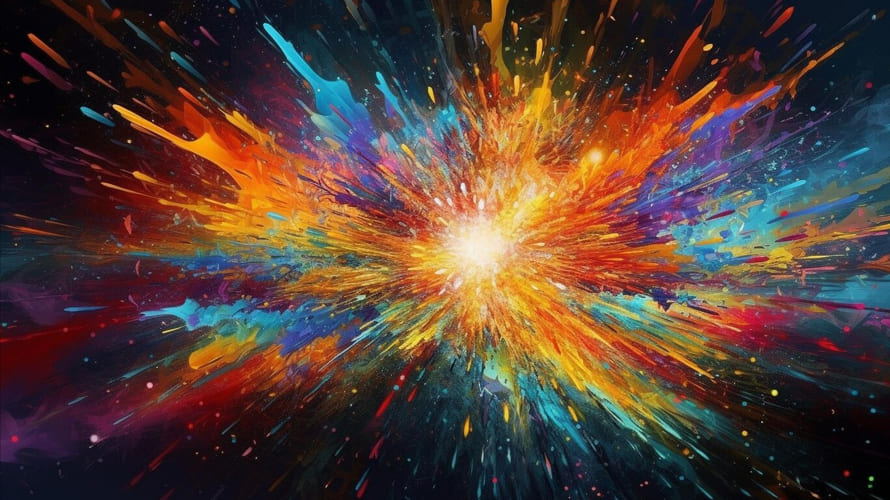
a. Defying Traditional Color Norms
The Quantum Color Palette disrupts the familiar color spectrum, introducing shades and combinations that defy traditional norms. Inspired by the quantum world’s unpredictability and dynamism, this trend explores a realm where colors are not confined to the limitations of the visible spectrum but extend into uncharted territories of vibrancy and luminosity.
b. Otherworldly Hues and Combinations
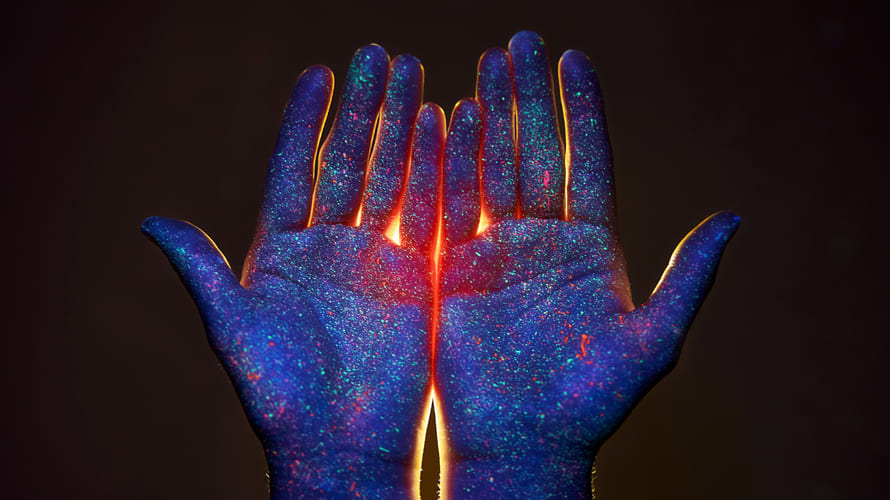
Imagine colors that evoke the ethereal glow of celestial bodies or the mysterious allure of quantum phenomena. The Quantum Color Palette introduces otherworldly hues and combinations, creating a visual language that goes beyond the mundane and taps into the cosmic and metaphysical realms. This infusion of colors challenges designers to think beyond the ordinary, fostering a sense of wonder and excitement.
c. Transcending Cultural Boundaries
The beauty of the Quantum Color Palette lies in its ability to transcend cultural boundaries and evoke universal emotions. These colors resonate on a level that surpasses geographic and cultural distinctions, creating a visual language that speaks to the shared human experience. The trend invites designers to embrace a palette that resonates with the awe-inspiring beauty of the cosmos.
d. Dynamic and Evolving Aesthetics
Quantum color aesthetics are dynamic and ever-evolving, reflecting the inherent unpredictability of quantum states. Designs infused with this palette exhibit a sense of movement and fluidity, capturing the essence of constant change and transformation. The result is a visual experience that feels alive and resonant, inviting viewers to engage with designs on a deeper, more dynamic level.
e. Challenges and Inspirations for Designers
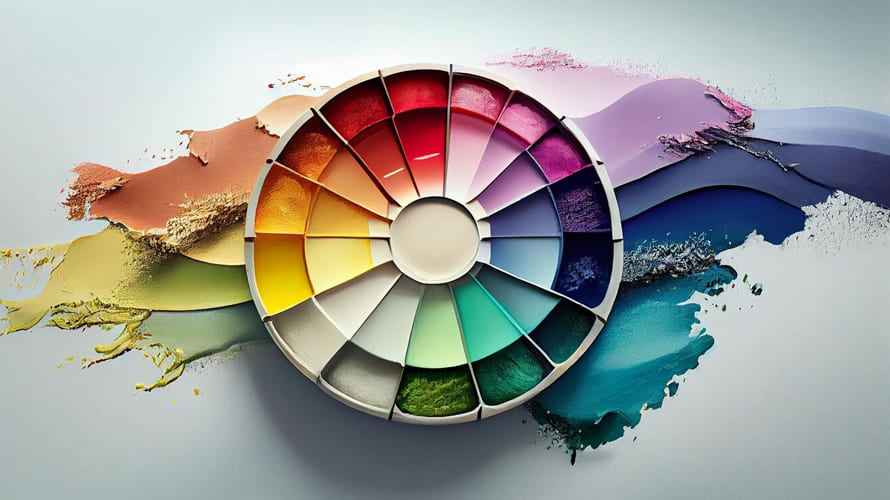
While the Quantum Color Palette offers a vast and unexplored playground for designers, it also presents challenges in terms of harmonizing seemingly disparate colors. Designers are inspired to experiment, pushing the boundaries of conventional color theory and creating harmonious compositions that evoke the enigmatic beauty of the quantum world.
In conclusion, the Quantum Color Palette represents a journey into the unknown, a visual exploration that transcends the familiar and embraces the infinite possibilities of color. As designers venture into this uncharted territory, they embark on a quest to unlock the secrets of the cosmos and infuse their creations with the mesmerizing vibrancy of quantum-inspired hues.
7. Virtual Wardrobe: The Rise of Digital Fashion
In the dynamic visual trends of 2024, a transformative trend is taking the fashion industry by storm — the Virtual Wardrobe. This innovative concept heralds the dawn of a new era where fashion transcends physical garments, introducing a realm where digital attire becomes an integral part of personal expression and style.
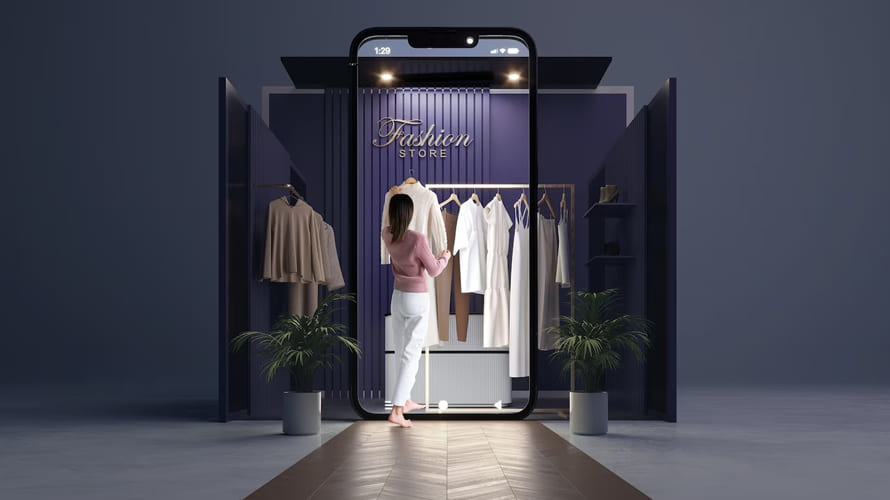
a. Digital Fashion Redefined
The Virtual Wardrobe is a paradigm shift in the way we perceive and engage with fashion. It goes beyond the constraints of physical clothing, offering a canvas for endless sartorial possibilities in the digital realm. Digital garments, meticulously designed and crafted, become the medium through which individuals can curate and showcase their style in virtual spaces.
b. Immersive Personal Expression
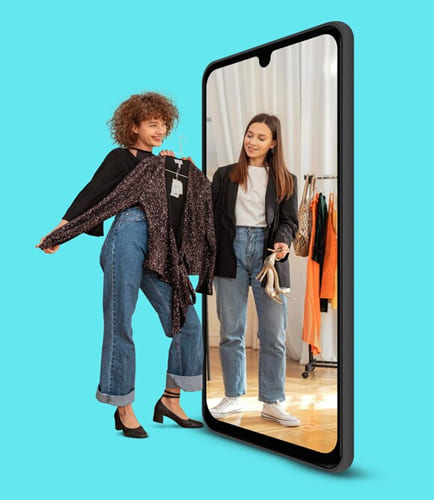
This trend isn’t just about aesthetics; it’s about immersive personal expression. Users can experiment with avant-garde designs, futuristic silhouettes, and colors that defy the limitations of physical fabric. The Virtual Wardrobe becomes a playground for creativity, allowing individuals to don digital ensembles that reflect their mood, personality, or the occasion at hand.
c. Environmental Sustainability
As conversations surrounding sustainability in fashion gain momentum, the Virtual Wardrobe emerges as a sustainable alternative. Digital fashion reduces the environmental impact associated with traditional clothing production, offering a more eco-friendly approach to personal style. The trend aligns with a growing consciousness about the environmental footprint of the fashion industry.
d. Collaborations between Fashion Designers and Digital Artists
The rise of the Virtual Wardrobe fosters collaborations between traditional fashion designers and digital artists. This intersection of creativity results in unique and boundary-pushing digital garments that blur the lines between the physical and virtual worlds. Fashion becomes an interdisciplinary art form, merging the craftsmanship of traditional design with the innovation of digital aesthetics.

e. From Virtual Spaces to Social Media Platforms
The impact of the Virtual Wardrobe extends beyond virtual realms. Users can showcase their digital fashion statements on social media platforms, creating a new kind of influencer culture centered around digital style. This trend not only transforms how we engage with fashion but also redefines the very concept of fashion influencers and trendsetters.
In conclusion, the Virtual Wardrobe marks a pivotal moment in the evolution of fashion. It offers a glimpse into a future where personal style knows no physical boundaries, where creativity flourishes in the digital realm, and where sustainability and innovation coexist harmoniously. As the Virtual Wardrobe continues to gain prominence, it invites individuals to reimagine fashion as a form of dynamic and limitless self-expression.
8. Sustainable Immersion: Eco-Conscious Virtual Worlds
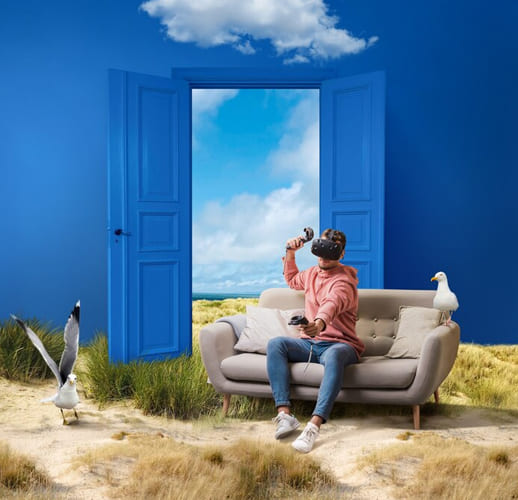
In the visual trends of 2024, a visionary trend known as Sustainable Immersion emerges, paving the way for a harmonious integration of environmental consciousness and virtual experiences. This innovative approach transcends traditional boundaries, offering eco-conscious virtual worlds that not only captivate the imagination but also champion sustainability in the digital realm.
Sustainable Immersion represents a paradigm shift in the way we approach virtual environments. Designers now weave ecological principles into the fabric of digital landscapes, employing sustainable design practices, eco-friendly visuals, and narratives that inspire environmental stewardship. This trend acknowledges the interconnectedness of the digital and physical worlds, advocating for responsible choices in the creation and consumption of virtual content.
As technology continues to evolve, Sustainable Immersion provides a template for a future where immersive experiences go hand-in-hand with ecological responsibility. It invites creators to consider the environmental impact of their virtual endeavors, fostering a collective commitment to sustainability that extends beyond the tangible into the virtual, promising a greener and more conscientious digital future.
9. Emotive Typography: Words with Feeling
In the ever-evolving realm of design, a revolutionary trend takes center stage in 2024—Emotive Typography. This innovative approach to visual communication transcends the conventional boundaries of text, weaving a narrative where words are not merely symbols but vessels of emotion. Let’s delve into the key elements of this transformative design trend.
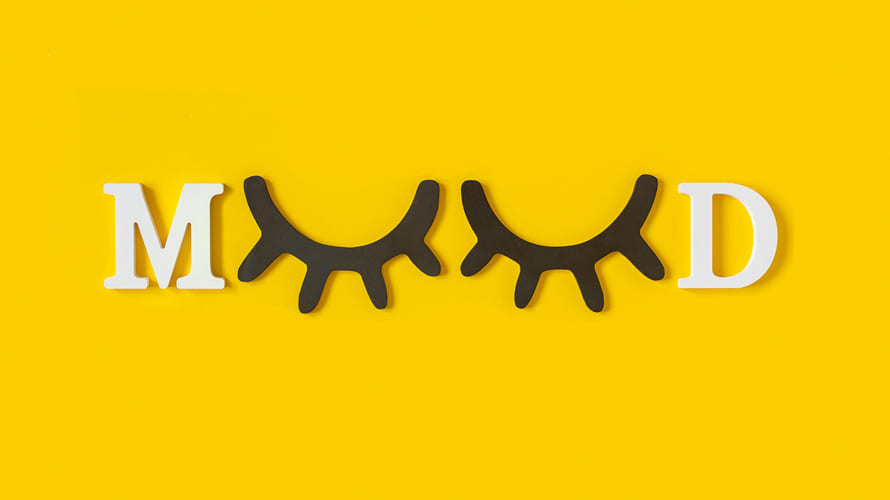
a. The Artistry of Typeface Selection
At the heart of Emotive Typography lies the deliberate and thoughtful selection of typefaces. Each font becomes a brushstroke, painting a nuanced emotional landscape. Serif or sans-serif, script or bold, the choice of typeface serves as the initial brushstroke on the canvas of emotion. This artistry ensures that the typography itself becomes a visual representation of the intended emotional tone.
b. Color Palette as Emotional Palette
Color, a powerful communicator of emotion, takes center stage in Emotive Typography. Designers leverage a carefully curated color palette to evoke specific feelings associated with the words. Warm tones may convey passion or excitement, while cool hues evoke calmness or introspection. The integration of color transforms the typography into a vibrant and emotionally charged visual experience.
c. Layout and Composition: Crafting Emotional Cadence
The arrangement of text is not just about legibility; it becomes a dynamic composition, crafting an emotional cadence. Designers experiment with spacing, alignment, and layout to create visual rhythms that mirror the emotional beats of the words. This deliberate arrangement ensures that the viewer is not just reading text but engaging in a multisensory encounter that resonates on an emotional level.
d. Dynamic Motion in Typography

Emotive Typography is not confined to static forms; it embraces dynamic motion to enhance emotional impact. Animations, transitions, and kinetic typography techniques breathe life into words, turning them into a visual symphony that captivates the audience. Dynamic motion in typography ensures that the emotional journey unfolds in a fluid and engaging manner.
e. Multisensory Engagement
Beyond the visual realm, Emotive Typography engages multiple senses. The choice of typeface influences the tactile experience when words are physically encountered. The visual and tactile elements combine to create a multisensory encounter that deepens the connection between the audience and the message.
f. Applications Across Design Disciplines
Emotive Typography finds versatile applications across diverse design disciplines. From branding to editorial design, from advertising to web interfaces, this trend enhances the impact of visual communication. In branding, it becomes a tool for expressing a brand’s personality. In editorial design, it enriches the storytelling experience. In advertising, it amplifies the memorability of campaigns. Across design disciplines, Emotive Typography leaves an indelible mark on the audience, forging a powerful connection through the marriage of words and feelings.
As designers continue to explore the vast potential of Emotive Typography, it stands as a testament to the evolving language of design. Words, once static and silent, now resonate with emotion, creating a profound and lasting impact that transcends the boundaries of traditional visual communication.
10. Mindful Motion: Purposeful Animation
In the dynamic landscape of visual design, the trend of Mindful Motion emerges in 2024 as a deliberate and thoughtful approach to animation. Far from flashy effects and gratuitous motion, Mindful Motion represents a paradigm shift where animation serves a purpose — to enhance user experience, guide narratives, and elevate visual communication.
a. Purposeful Storytelling through Animation
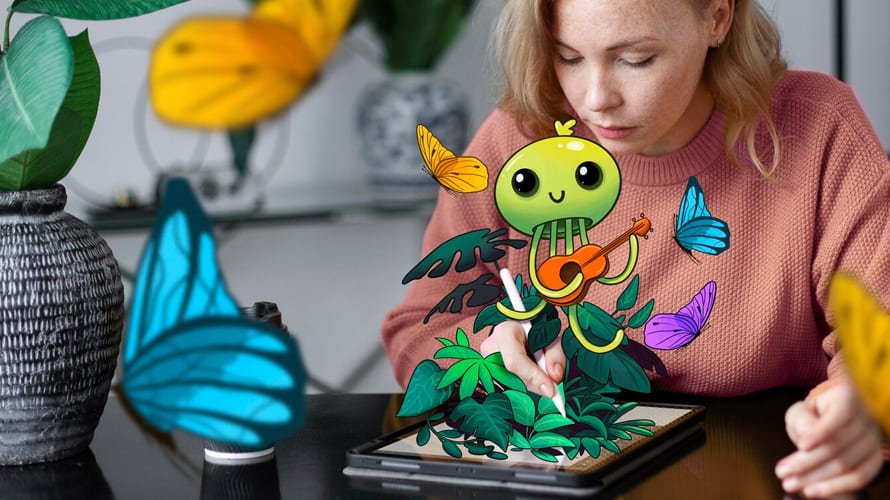
Mindful Motion places a premium on purposeful storytelling. Animations are no longer ornamental; they are narrative tools carefully woven into the fabric of the visual experience. Each motion serves a deliberate function, guiding the user through a seamless and intuitive journey that enhances the overall narrative impact.
b. Enhancing User Experience with Subtle Animation
Unlike extravagant animations that may overwhelm, Mindful Motion focuses on subtlety. Subtle animations enhance user experience by providing cues, feedback, and transitions that feel natural and intuitive. The goal is to create an interface where motion complements functionality, leading to a more enjoyable and user-friendly interaction.
c. Intentional Branding and Visual Identity
Mindful Motion becomes an integral part of branding strategies. From logo animations to website interactions, brands leverage purposeful animation to communicate their identity effectively. Motion elements are intentionally crafted to align with the brand’s personality, fostering a cohesive and memorable visual identity.
d. Guiding User Attention with Animation
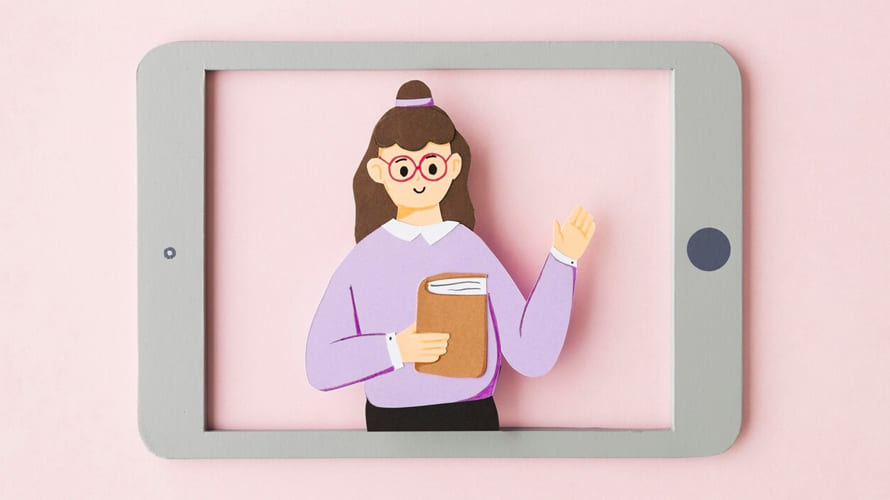
Mindful Motion acts as a guide, directing user attention and focus. Strategic animations draw attention to essential elements, subtly indicating where the user should look or interact. This intentional guiding of attention ensures a more directed and purposeful user journey.
e. Seamlessly Integrated Functional Animation
Functional animation is seamlessly integrated into the user interface, serving as an extension of functionality rather than a decorative element. Buttons respond with a gentle animation, transitions between screens are fluid, and interactive elements provide visual feedback. This cohesion between functionality and animation creates a harmonious and intuitive user experience.
f. Mindful Animation for Accessibility
Inclusivity is a cornerstone of Mindful Motion. Designers consider accessibility, ensuring that animations do not hinder usability for individuals with sensory sensitivities. Mindful Animation strives to be inclusive, creating visual experiences that are enjoyable and accessible for a diverse audience.
As we navigate a digital landscape saturated with stimuli, Mindful Motion emerges as a guiding principle, encouraging designers to approach animation with purpose and mindfulness. By infusing motion with intention, this trend transforms visual experiences into seamless, engaging, and user-centric journeys that prioritize the thoughtful integration of animation into the broader narrative of design.
Conclusion: A Visual Odyssey Awaits
As we embark on the visual journey of 2024, it becomes evident that the intersection of creativity and technology is forging an extraordinary path forward. The trends outlined — from Holographic Realities to Mindful Motion — collectively paint a picture of a visual landscape that transcends the ordinary, inviting us into a realm where imagination knows no bounds.
This visual odyssey is marked by a profound shift in how we perceive, interact with, and create visuals. Holographic Realities bid farewell to the constraints of two-dimensional screens, ushering in an era where digital experiences seamlessly merge with the physical world. Neural Aesthetics introduces a collaborative dance between human creativity and artificial intelligence, challenging traditional notions of artistic creation.
Cyberpunk Chic fuses the high-tech with the gritty, influencing not only fashion but the broader design aesthetic. Dynamic Data Visualization transforms complex information into visually engaging narratives, bridging the gap between data and aesthetics. Biometric Branding ushers in a new era of personalized visual experiences, where brands respond to individual biometric data.
The Quantum Color Palette explores hues beyond the conventional spectrum, introducing a cosmic vibrancy that defies expectations. The Virtual Wardrobe transcends physical garments, redefining personal style in the digital realm. Sustainable Immersion ensures that our virtual experiences align with eco-conscious principles, reflecting a commitment to environmental responsibility.
Emotive Typography breathes life into words, turning them into a visual symphony of emotion. Mindful Motion guides us through purposeful animations, enhancing storytelling and user experiences. As we traverse these trends, it becomes clear that we are not mere observers but active participants in a visual odyssey that redefines the boundaries of creativity, technology, and human connection.
In this era, design is not just about aesthetics; it’s a language that communicates emotions, values, and narratives. It’s a canvas where the tangible and virtual converge, where innovation and sustainability coexist, and where personalization and inclusivity shape the future of visual experiences. As the visual odyssey unfolds, it invites us to explore, create, and immerse ourselves in a world where the extraordinary becomes the new normal, and the possibilities are boundless.

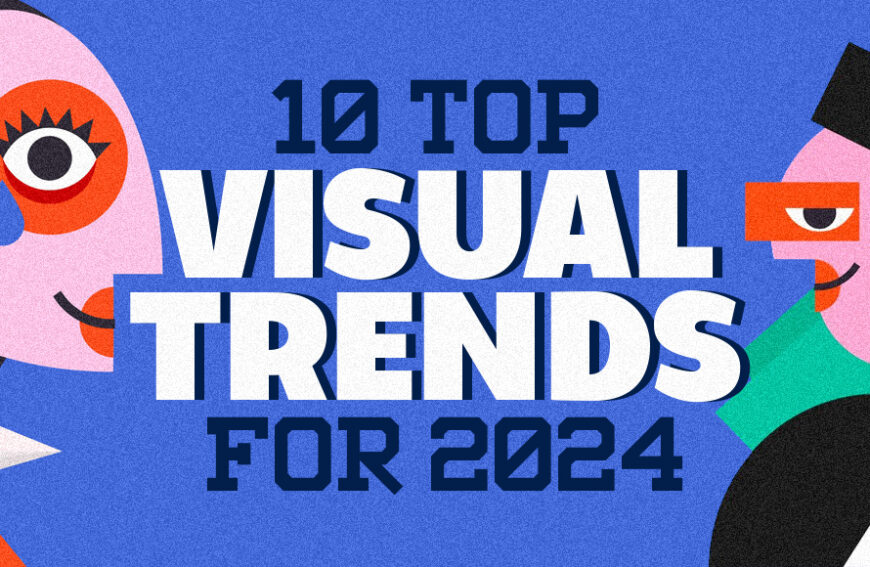
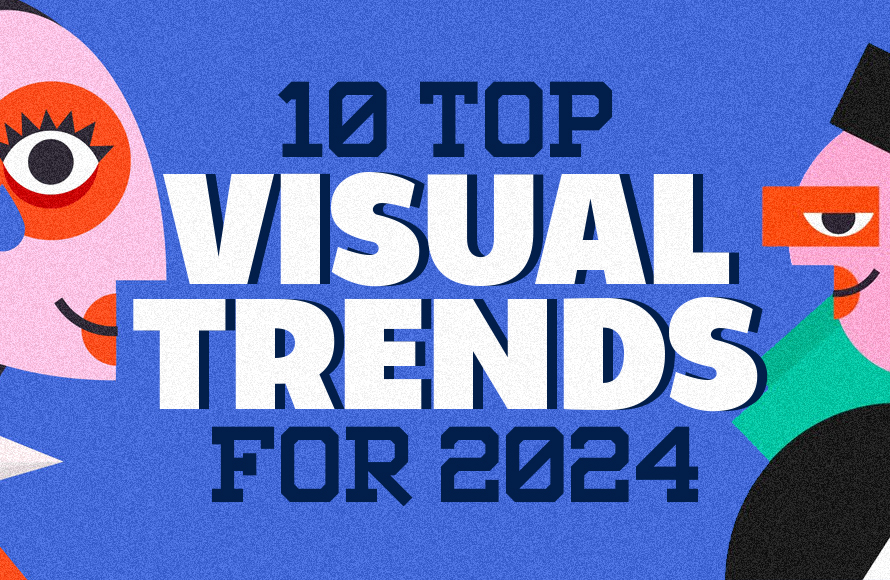


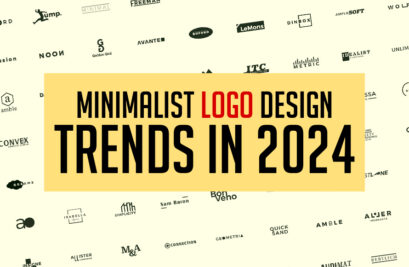
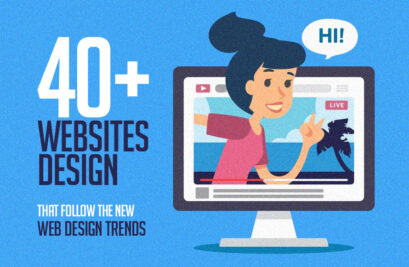
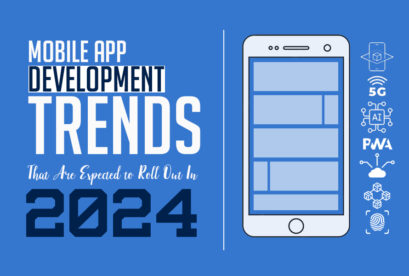





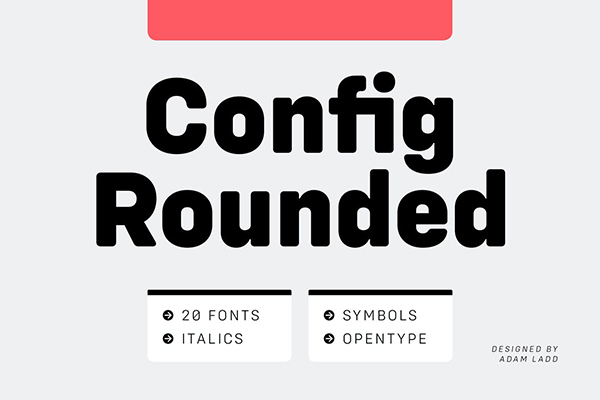
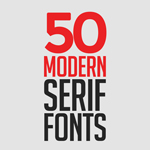



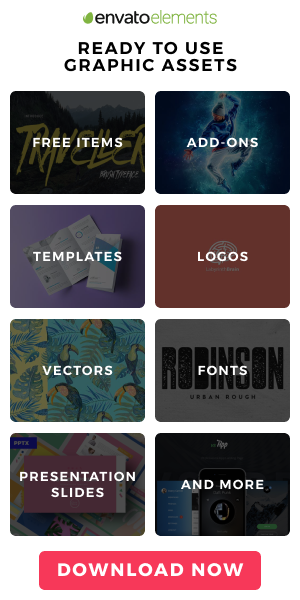

Quantam color palette…??? It’s one thing to say that there’s a color trend. It’s a completely different thing to say that there are colors combinations that we haven’t seen before inspired by a realm that we can’t observe.